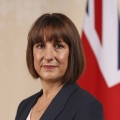Politicians have sounded the alarm about the performance of UK regulators, suggesting there are problems with a “growing vacuum in regulatory accountability”, and calling for the government to set up a new independent statutory body to monitor regulators’ performance.
The House of Lords industry and regulators select committee has published a report which concludes that a fresh approach to overseeing UK regulation is required.
It said many of the witnesses giving evidence to its inquiry shared the views of Gareth Davies (pictured), head of the National Audit Office, that “there is still a lot of room for improvement on transparency” in the UK’s 90 regulatory bodies.
One recommendation is the creation of an ‘Office for Regulatory Performance’ to investigate and report on regulators’ performance and support Parliament in holding regulators to account.
In addition, some of the inquiry witnesses proposed a new body specifically for scrutiny of the financial services regulators. Options put forward includes an ‘Office for Financial Regulatory Accountability (OFRA)’, or a new ‘executive nondepartmental public body’, which would be sponsored by the Treasury, subject to parliamentary scrutiny and chaired by “a distinguished FTSE 100 qualified leader with a prominent background in financial services”.
The metrics used to assess regulators should focus on outcomes rather than processes, and, to avoid regulators “marking their own homework”, the metrics that regulators adopt should also be subject to scrutiny.
The think-tank the Financial Inclusion Centre said regulators “should be judged on how well they make the industries they regulate serve the interests of the real economy, environment and society, not on how well they serve the interests of regulated industries”.
The committee also flagged up concerns about staff turnover within regulators, saying this can lead to “a lack of institutional memory”, “a lack of focus, expertise, experience and skills”, and “constantly changing regulatory initiatives”.
Read the report, ‘Who watches the watchdogs?’ here.







